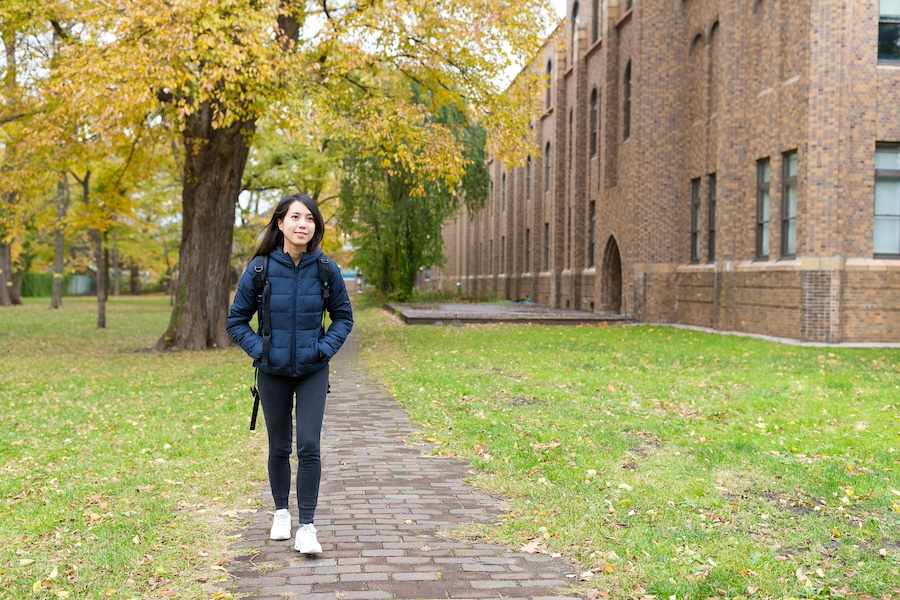College campuses across the country have been roiled by protests, from elite private schools like Columbia, to flagship state colleges like UT Austin. As so often happens when students protest, these have captured headlines and stirred a vigorous debate in the media over both the protests themselves, and the response to them.
We are not qualified to discuss the protests themselves, and defer to policy experts here. Instead, we want to cover questions we get a lot of anxious parents have, seeing these institutions on the news. Are these schools still safe? And will these protests impact their rankings or acceptance rates?
Are College Campuses Still Safe?
This is a reasonable question many parents have, especially when headlines highlight large numbers of arrests, and the nightly news shows clips which don’t seem to be very calm or safe, of protestors and cops alike. These worry parents, who are sending their children to live alone for the first time, hundreds or even thousands of miles away.
But what’s the truth of the matter, really? The answer is, of course, nuanced. This is a developing situation, with many colleges still grappling over their level of response. There are some things we can say for certain though.
On the whole, these college campuses are still about as safe as they ever were. College campuses tend to be somewhat dangerous anyway, as getting thousands of young people in one place for any reason can be volatile. That’s even before counting the schools in less than savory neighborhoods, like Yale, UChicago, Johns Hopkins, and Penn.
Our point is that college is an adventure in the old sense of the word. It is educational, but it is not necessarily safe. While these protests are grabbing headlines, and can make some students feel newly unsafe or unwelcome on campus, the number of violent acts taken on campus generally does not increase from their presence.
The worry about safety is a natural response, and one worth taking seriously. We’ll discuss how this can impact your college choices later in the article, but we do want to begin with this. Colleges are often unsafe, but that is their nature.
Will the Protests Impact Admissions?
This is a complicated question for a few reasons. The first is the nature of college applications themselves. We’ve just finished up applications for one year, and the next admissions cycle comes this fall; any impacts there will only be seen and able to be analyzed a year from now. While we can make informed predictions, we can’t know what will happen perfectly. If we were seers, I’m sure Wall Street would be paying us handsomely.
The other difficulty is predicting the reaction of students. There are many many factors which impact a student’s decision to apply to one school or another, and this is simply another on the pile. How much it matters to any student, and how it impacts the aggregate of applications is nebulous. We will try to predict trends, and point to specific factors which have historically impacted application rates.
Protests and Dips in Application
Historically, this is not the first time student protests have disrupted campuses. While it is the largest nationally since the antiwar protests of the sixties, college students are an often fractious group. We can look to these past protests to see if they are associated with corresponding dips in application rates.
The most recent example comes from the University of Missouri, which experienced significant student protests from 2015-16, culminating in the University President’s resignation. The application rate for 2017 dropped 35%, which is precipitous. By comparison, the Coronavirus pandemic, which broadly shut down everything, caused an overall enrollment drop of around 5%.
This is admittedly a limited example, but shows just how impactful a major protest can be in the age of social media. That said, while the University of Missouri is a good school, they don’t quite have the same prestige, or brand recognition, as a school like Columbia.
Prestige, Reputation, and Public Image
What draws students to top universities, more than anything, is the prestige associated with them. The brand of these colleges, from Columbia to UT Austin, is quite high, and is a major driver of the application rates. The question then is whether these protests will tarnish the brand and image of these schools enough to negatively impact admissions.
We believe this mostly comes down to the response the schools take. Here, we can look at Columbia’s Vietnam era protests. In the short term, these caused a slight dip in application numbers. In the long term, the university’s response did a lot to ameliorate previous charges of elitism and disconnection from the community, as the reforms the protestors imposed on the university enhanced their image in the eyes of the public.
That’s not to say all of the outcomes of the protests were ideal; and they did tarnish Columbia’s reputation in the short term. The Ivy League and related schools have spent a long time building their brand however, and it will take more than a few protests to destroy all of that. This isn’t to say that they couldn’t ruin their reputations, but nothing that has occurred yet will do so.
Disparities in Responses
Finally, we want to touch on how disparities in responses by universities can have different impacts. This story by the BBC highlights the contrast between Northwestern and Northeastern, but you can substitute the names of many elite universities on either side. The difference is simple: whether or not the university calls in police, and how heavy handed the police response is.
A heavy handed police response always makes headlines, while compromise, even in a minor way, often does not. Our system is attention driven, and clashes between police and protestors draw more eyes. While the protests can draw negative attention on their own, the show of force and violence on campus is more likely to cause students to seek an education elsewhere.
The police response also sometimes includes faculty, notably at Emory. This is possibly the most dangerous internal challenge for universities, as angering senior, tenured faculty can cause a major and lasting headache for administrations, due to how colleges are organized.
How Will This Impact You?
Generally, we do expect to see slightly lower application rates at a number of top schools, especially those dominating headlines for disruptions on campus and student arrests. While there are many protests ongoing, the schools which have been most impacted at this point are:
- Columbia, where the protests and arrests first heated up and caught broad attention.
- UT Austin, which is one of the biggest and most prestigious public schools to be impacted thus far.
- Emory, where the arrests of high profile professors made headlines.
Other schools may come to dominate the headlines, and we expect any that do to see some decline in admissions, as parents and students turn to schools which appear calmer. This does not suddenly mean that Columbia will be easy to get into; the appeal and prestige of the Ivy League persist, but we expect to see application numbers fall by a few percentage points.
The choice of where to apply is always a personal one, with many factors. Whether or not the campus atmosphere and safety meet your standards is going to vary by applicant. We recommend researching each campus, their policies, and their stances on the issues that matter to you. This is part of determining fit, something all of these campuses take into account when making admissions decisions anyway.
Final Thoughts
College students protest; this is in the nature of young, energetic, and passionate people. Colleges further actively try to admit students who care about and want to change the world around them; that they then choose to try and do so should not be a surprise.
How colleges respond to these protests is up to them, and we are seeing a full gamut of responses currently. As with all actions colleges take, we expect to see ramifications in the admissions sphere. We hope this article has covered what those are likely to be and why, and explained how all of this may come to impact you.
If you want advice on finding a college that best fits your needs and values, or more advice on how these might impact your college applications, schedule a free consultation today. We have a depth of experience on every aspect of admissions, and are always happy to hear from you.








